Steering to victory: Lassonde team accelerates to top spot in self-driving car competition
Tags:
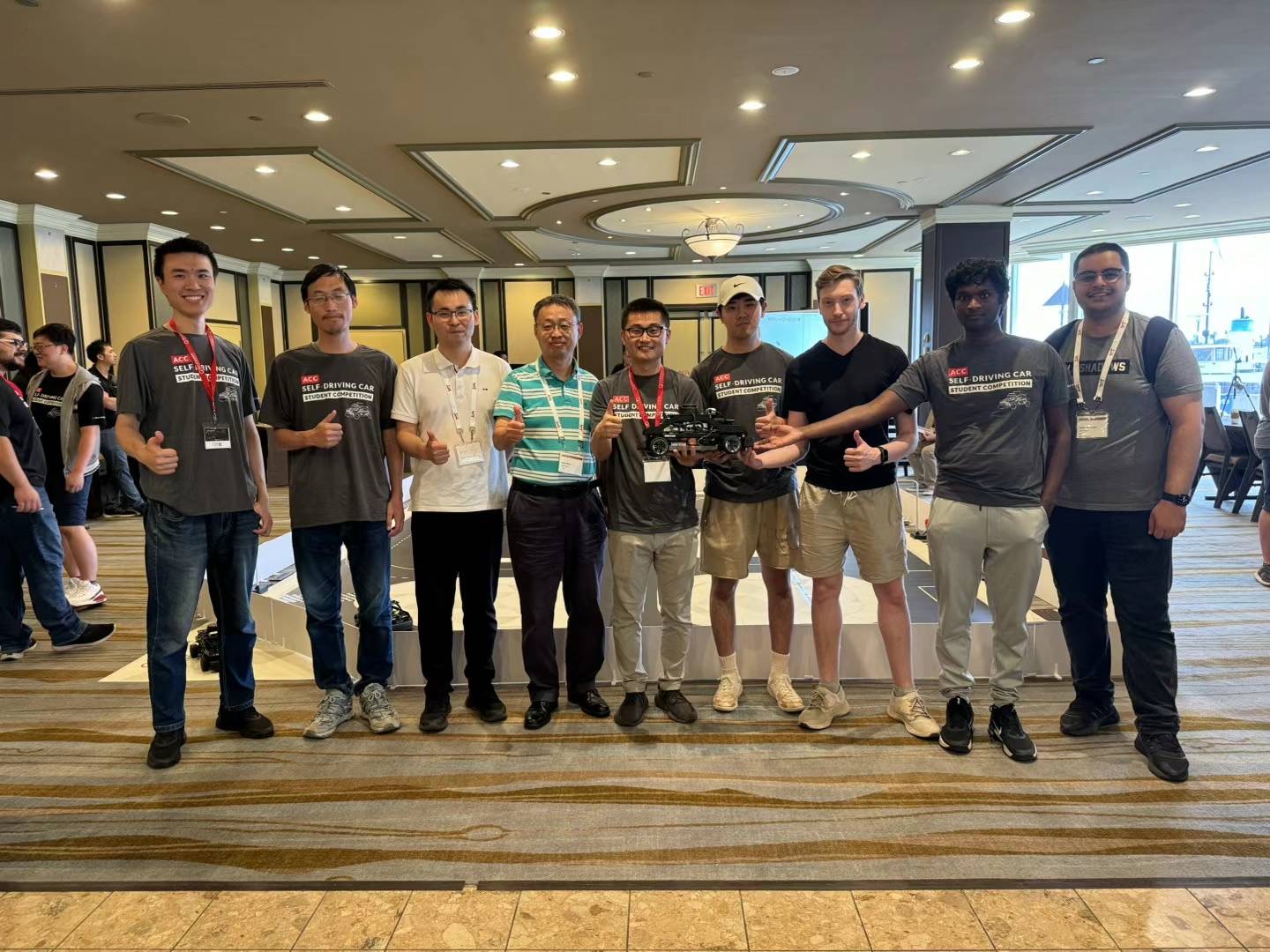
Not long ago, self-driving cars were merely science fiction. Today, however, researchers across the globe are diligently working to integrate autonomous vehicles (AVs) into everyday life. Among these trailblazers is a team of students at York University’s Lassonde School of Engineering who recently achieved second place in the Self-Driving Car Student Competition at the 2024 American Control Conference (ACC) in Toronto.
This conference is one of the most prestigious in the field of control systems, bringing together experts from academia, government and industry to share creative ideas and network with likeminded individuals. The Self-Driving Car Student Competition, sponsored by Quanser, provides an extraordinary opportunity for student researchers to apply their critical thinking skills and solve technical challenges faced by autonomous vehicles.
The competing team at Lassonde, known as FullThrottle – Spacecraft Dynamics Control and Navigation (SDCN), was led by Mingfeng Yuan, a postdoctoral researcher working under the supervision of Jinjun Shan, professor in the Earth & Space Science & Engineering department.
“Autonomous vehicles are revolutionizing the transportation industry due to their potential to enhance safety, improve driving efficiency and increase vehicle accessibility,” says Yuan. “The applications for AVs are vast, diverse and have the potential to reshape cities, economies and our daily lives. Competing at the American Control Conference allowed us to contribute to the next generation of these vehicles.”
As the only Canadian team at the competition, FullThrottle – SDCN Team showcased their nation’s talent with pride. Their award-winning performance highlighted their technical expertise and capacity to represent Canada on a global stage.
The team also included PhD candidates, Hunter Schofield and Yida Zang, MASc candidate, Amal Haridevan and undergraduate students, Hao Zhang and Yiqun Ma.
“Self-driving cars are complex systems, and it’s impossible for a single person to design and debug the entire system on their own in a short period of time,” says Yuan. “The success we achieved at this competition was a result of the unity and full commitment of our team.”
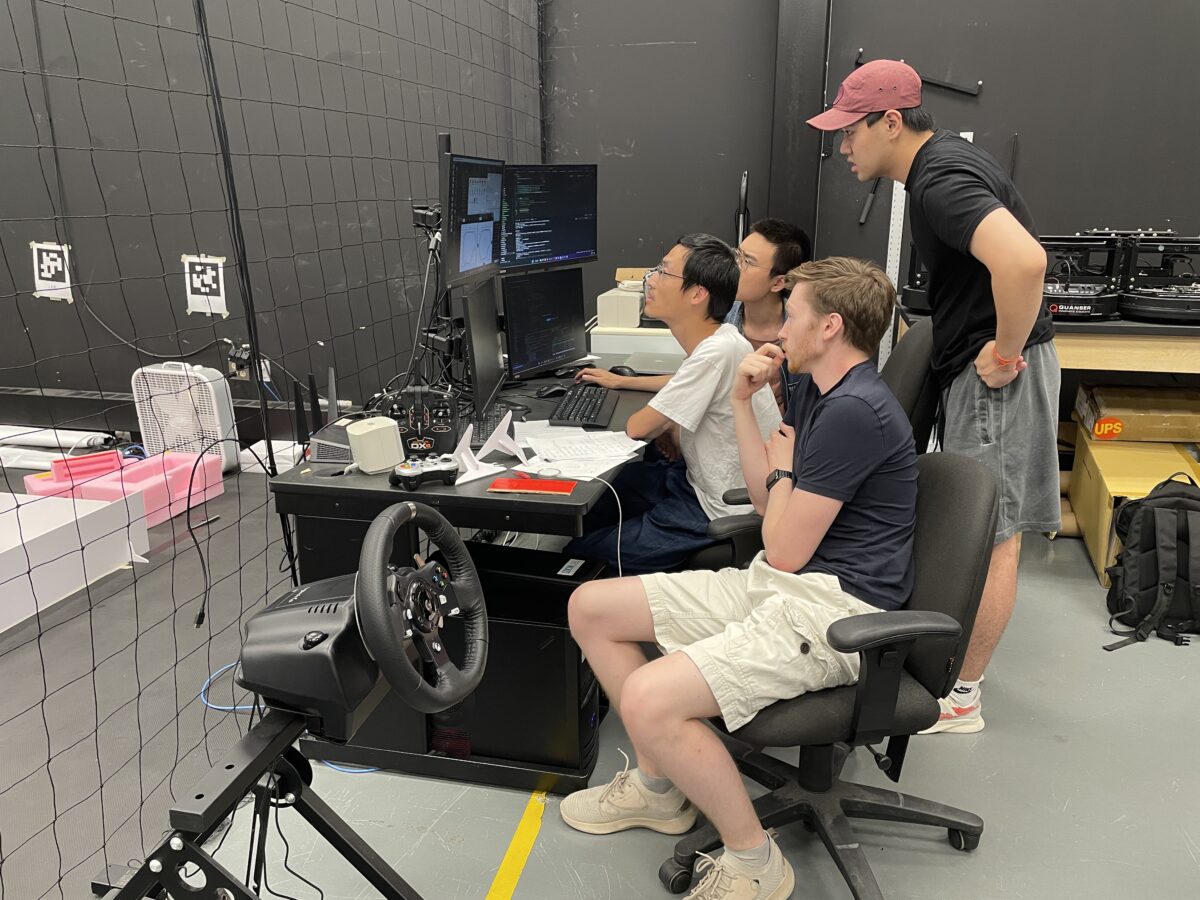
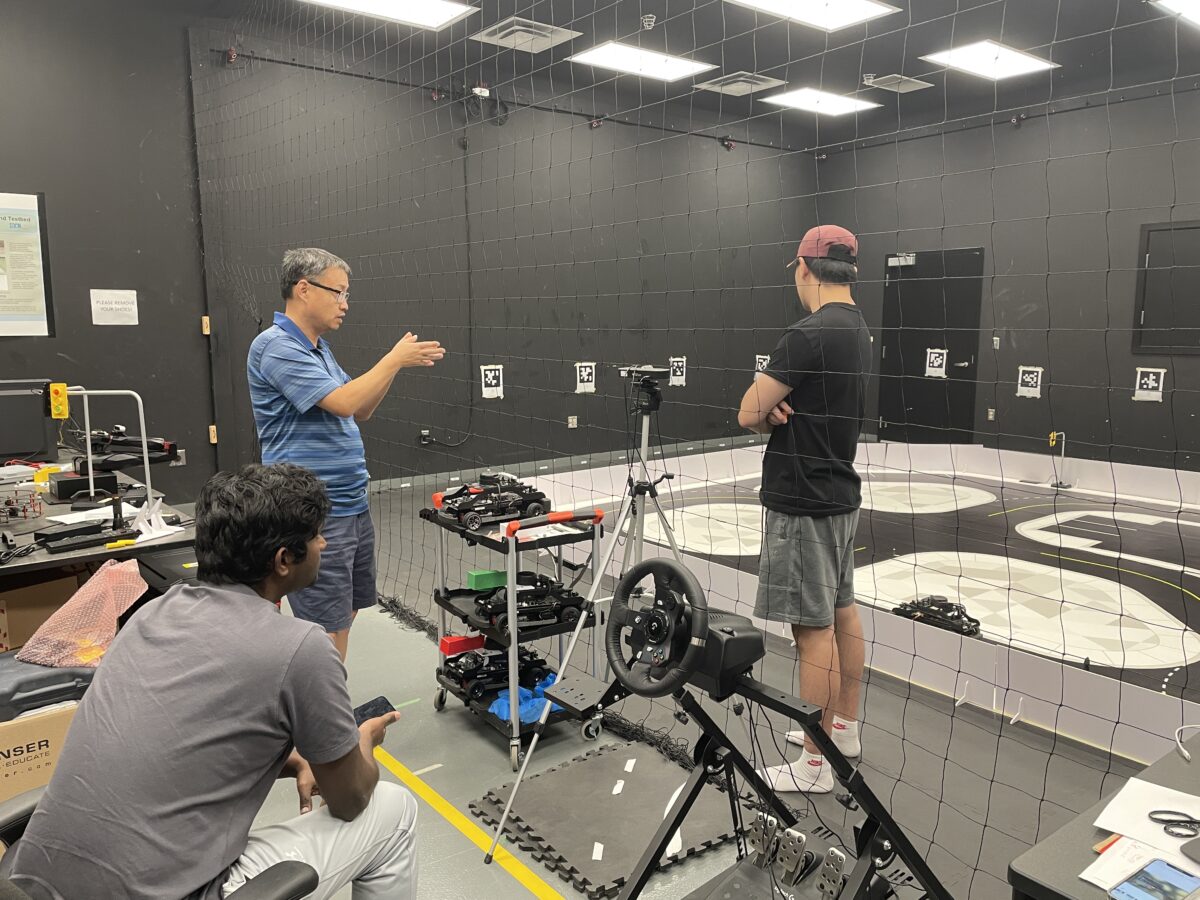
Full Throttle – SDCN team preparing for the American Control Conference with Professor Jinjun Shan.
The competition was structured into three distinct phases, starting with an initial pool of 40 teams, representing 28 universities and 15 countries.
First, teams developed and validated solutions using a cutting-edge digital twin platform for self-driving cars. This phase was followed by the implementation of solutions on actual hardware.
The final, and most difficult challenge took place at the American Control Conference, where teams navigated a complex circuit with a fully operational self-driving car. This stage required expert-level programming, as teams ensured their car demonstrated impeccable driving accuracy and appropriately responded to street signs, traffic lights and various obstacles.
The high-pressure environment put the team’s programming and problem-solving skills to the ultimate test.
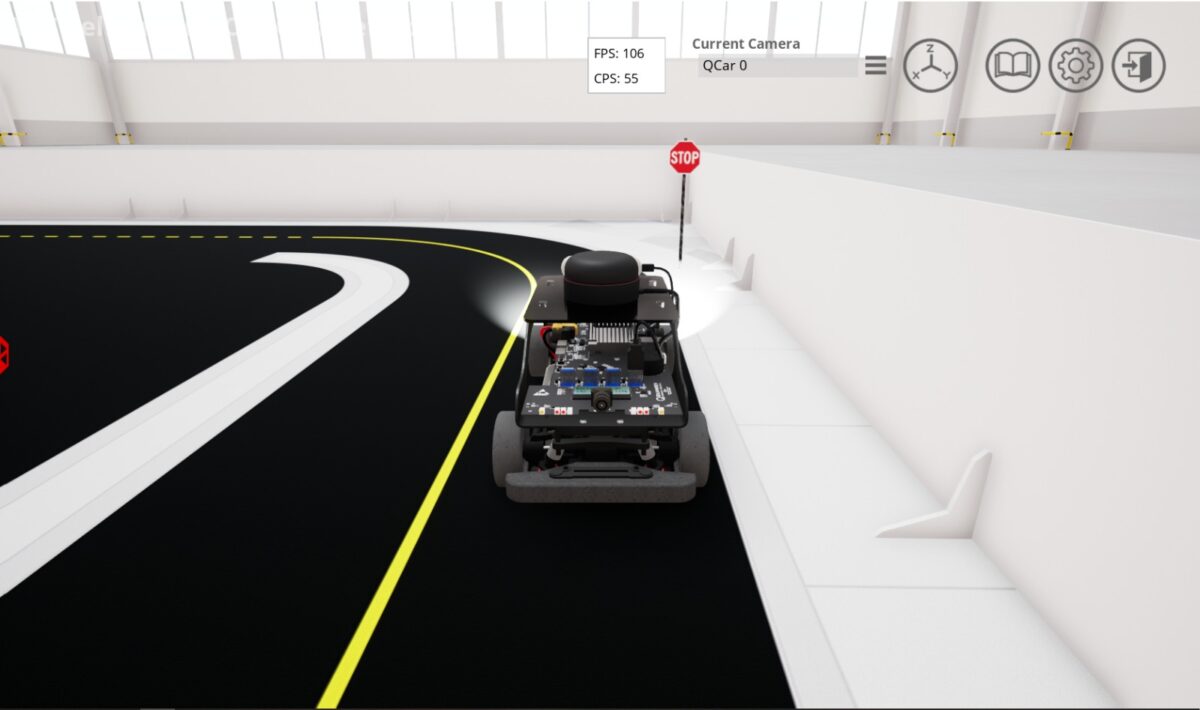
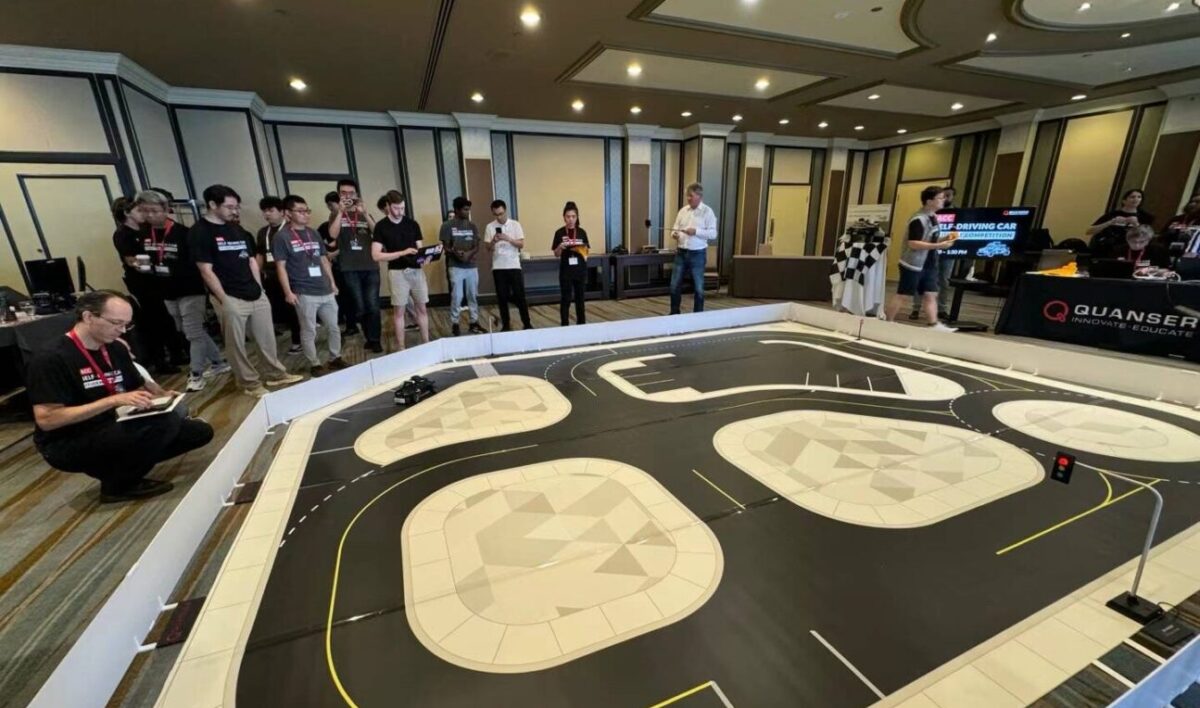
Left: Self-driving car on digital twin platform. Right: Autonomous driving circuit at the American Control Conference.
“Events like this are incredibly valuable for the student experience,” says Yuan. “They foster team spirit and provide an opportunity to apply our knowledge in a practical setting. We worked together through late nights, tackling technical challenges and sharing ideas. Integrating our research into a physical car and achieving second place at the competition gave us a great sense of accomplishment.”
Beyond their second place award, the team’s success also resulted in media attention from both Quanser and CTV News.
“Through such competitions, we can study the distinct modules of autonomous vehicles and understand the challenges of each one. This comprehensive understanding of autonomous driving technology is invaluable for all of us,” says Yuan. “Professor Shan was also a source of unwavering support throughout this competition. I feel very fortunate to spend my time in the supportive environment of his Spacecraft Dynamics Control and Navigation (SDCN) Laboratory.”